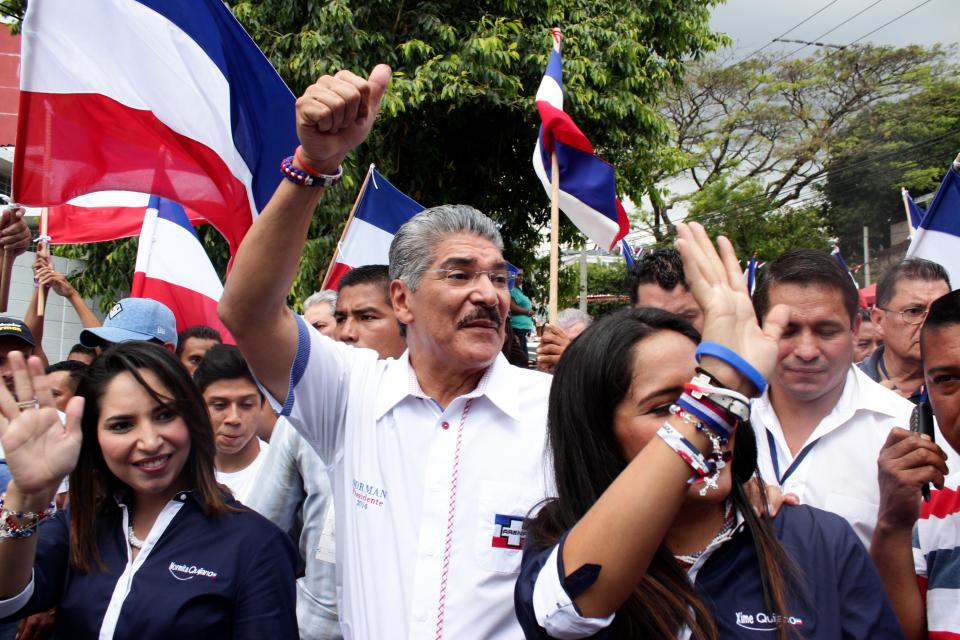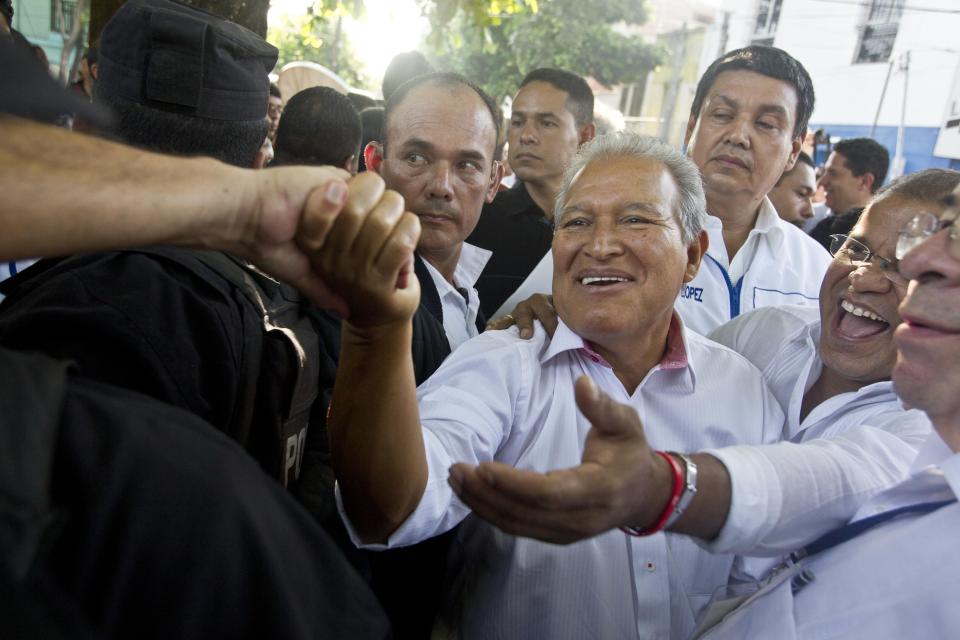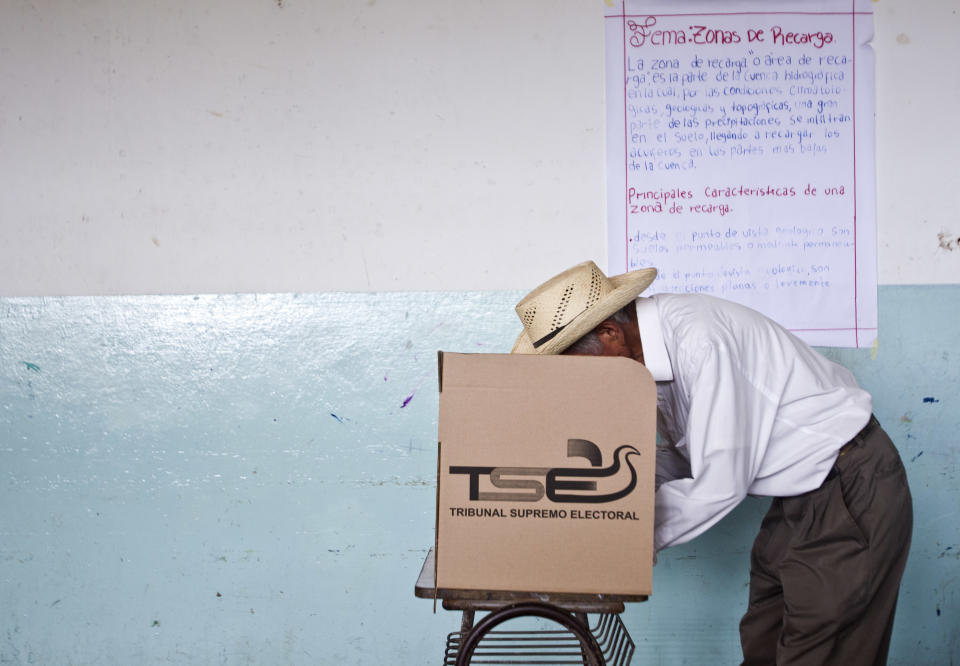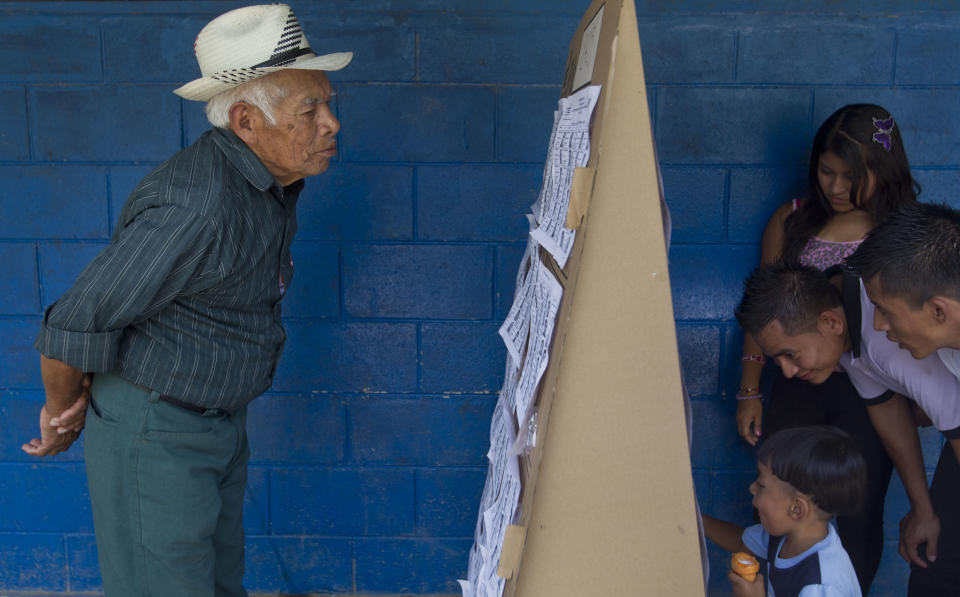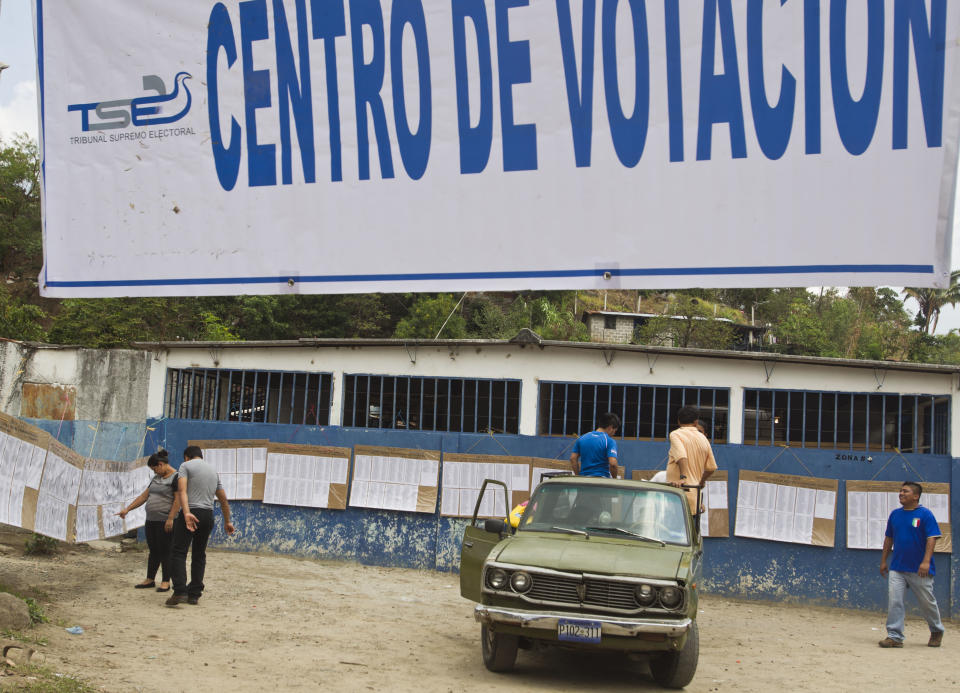El Salvador's presidential election remains close
SAN SALVADOR, El Salvador (AP) — Authorities declared El Salvador's presidential runoff election too close to call late Sunday, with just a 0.2-percent margin separating a one-time Marxist guerrilla and the conservative former mayor of El Salvador's capital.
Preliminary returns with more than 99.7 percent of polling stations reporting showed Salvador Sanchez Ceren, the leftist candidate of the ruling Farabundo Marti National Liberation Front, the FMLN, less than 7,000 votes ahead of his conservative adversary, former San Salvador Mayor Norman Quijano, out of about 3 million ballots cast.
Both declared themselves victors despite official calls to hold off on such claims because the race was too tight.
It was a surprising result, considering that opinion polls in the weeks leading up to the election had put Quijano 10 to 18 percentage points behind Sanchez Ceren. Quijano alleged fraud, and called on the army to play a role, a statement that carries ominous echoes in a country where 76,000 people died in a 1980-92 civil war that pitted the army against the leftist rebels.
"We are not going to allow Venezuelan-style fraud, in the style of Chavez and Maduro," Quijano said, referring to the late Venezuelan President Hugo Chavez and his hand-picked successor as president, Nicolas Maduro. "We have our own recount, which shows we won."
Quijano bashed the country's top electoral tribunal, calling it "sold out to the dictatorship," and said that "the armed forces are ready to make democracy."
The country's military leaders made no comment on the elections.
Sanchez Ceren also claimed to have won.
"The men and women of El Salvador are the ones who decide, and if you don't accept the result, you are violating the will of the people," Sanchez Ceren said. "I say to my adversary, to his party, that my administration will welcome them with open arms, so that together we can build a new country."
The president of El Salvador's Supreme Electoral Tribunal, Eugenio Chicas, said the race was "extremely tight" and said neither candidate could claim victory.
"This tribunal orders neither party to declare itself the winner, in light of results that are so close that only the final count can decide," Chicas said, adding that "the margin is so close that we ask for prudence."
He said the final vote count would begin Monday.
Sanchez Ceren, 69, had been seen as the favorite to become the first true guerrilla to lead this Central American nation. Outgoing President Mauricio Funes was a journalist who was sympathetic to the FMLN rebels during the civil war but was never a guerrilla.
Quijano, 67, ran for the once long-ruling Nationalist Republican Alliance, known as ARENA, which lost the presidency to Funes in 2009.
Sanchez Ceren campaigned on a promise to deepen the outgoing government's popular social programs and govern as a moderate. He said he envisioned ruling like Uruguayan President Jose Mujica, also a former guerrilla who formed an inclusive government.
Quijano accused the former guerrilla of appearing to want to lead the country like Venezuela's Chavez, and he warned of a return of communism. He also promised to crack down on rising gang violence.
Sanchez Ceren was a top rebel commander who helped negotiate the 1992 peace accords that ended El Salvador's civil war, in which the United States supported the government against the FMLN to prevent communism from spreading in Latin America.
El Salvador is dealing with one of the highest murder rates in the world. A 2012 gang truce seemed to cut the country's daily average of 14 dead by half, but the drop appears to have been short-lived.
Homicides, mostly of gang members, have risen again this year; police statistics show 501 murders the first two months of this year— a more than 25 percent increase over the same period of 2013. More unsettling is the fact that many dead have turned up in mass graves, leading some to believe the gang truce could have been either an illusion or an agreement to cover up the violence.
